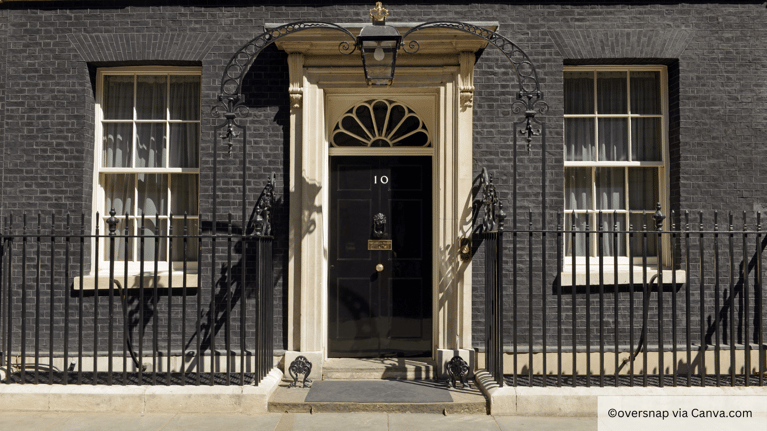
PR & Media Relations Workshops: Boost Your Agency's Visibility in Challenging Economic Times
What Are PR & Media Relations Workshops? Our recruitment PR & media relations workshops provide recruitment professionals with essential tools and expertise to excel in their marketing roles, helping recruitment agencies optimise their PR and brand awareness activities during challenging economic times.

What are firms’ recruitment PR and marketing priorities in 2025?
As we head into the new year, hiring firms across the UK are adjusting to potential economic pressures, new priorities and a changing talent arena. To drive better results in what could be a challenging environment, many are readjusting their communications strategies for the coming months. This evolving environment is why we launched a poll recently across our social media channels that looked to identify what firms were prioritising when it came to marketing and PR in 2025.

How to create a positive candidate experience
In what remains a highly competitive job market, creating a positive candidate experience can make all the difference between securing a new candidate, or losing them to a rival. But what elements contribute to this experience, and how can employers optimise their hiring processes?

AI in recruitment marketing - is it the solution we are looking for?
You can't escape the AI chatter these days. It's being pitched as the miracle cure for every conceivable problem. In our work as PR and marketing experts in the recruitment, HR, and talent management arena, we've noticed more and more firms experimenting with Generative AI tools like ChatGPT for their content needs. But does this approach actually work? What's at stake? And what should agencies understand before they hand over their content creation to algorithms?

Why you need a PR and marketing agency to support your hiring
Ask someone to think about PR and it’s likely their minds would bring up images of glamour, lots of drinking and, if you’re of a certain vintage at least, Absolutely Fabulous. Alas, times have changed. While it would be lovely to spend afternoons schmoozing with journalists in fancy bars, that’s sadly an outdated view of our industry. Most people have a broad understanding of what PR is, but few know how it really works, and why every in-house hiring department looking to boost its hiring should have a specialist agency in place.

Why PR?
One question we get asked a lot is ‘why PR?’ It’s a good question – for a typical buyer, usually a marketing or business leader – there are an abundance of ways that you could spend your, possibly fairly limited, marcomms budget, and there is a lot to do.

The best employer brands – and what you can learn from them
We recently looked at the importance of building a strong employer brand – which is particularly key now, before the job market rebounds in the coming months. But what does a good brand look like? We’ve outlined some examples with key takeaways from each.

Why authenticity is key in communication
Authenticity is a key trait for any hiring expert, and it’s becoming increasingly important as a cornerstone of wider external communications strategies. Here’s why it’s become critical for agencies to be more honest with their audiences, and how they can develop their authentic voice.

Recruitment marketing: make the most of the downturn while it lasts
It’s been a tough few years for recruiters in the UK. Following the post-pandemic boom period and since the beginning of last year, the fortunes of many have taken a downturn, with the market locked in stagnation. However, light looms on the horizon; with the election approaching, there have already been signs that hiring is on the up and, as the now infamous song goes, ‘things can only get better’.

Why Elon Musk shouldn’t have dropped his PR team
Elon Musk is never far from the news, and not always for the most positive reasons. This is why it was a surprise to see the Tesla and PayPal founder letting his only public relations employee at X depart earlier this month. But what impact could that have, and why is PR a must-have in the modern day?

The importance of communicating effectively with your audience
We live in a significantly more interconnected world than at any other point in history and sectors like recruitment are becoming increasingly crowded. This makes communicating with your audience and standing out, key. It may have been possible to rely solely on word-of-mouth and your network in the past, but it’s certainly not now. So, with that in mind, how do you communicate effectively with your target audiences?

How NOT to launch an election campaign – PR own goals to avoid
As a communications professional, you quickly learn that there are some major PR ‘own goals’ to avoid when launching any campaign. To put it mildly, if you mess up your key interactions with your audience – no matter who that is – it will likely have a detrimental impact on your reputation and your ability to convert or win over that potential customer further down the line.

Debunking the top 5 PR myths: Separating fact from fiction
Get ready to challenge what you thought you knew about PR and equip yourself with the truth.
PR or Advertising?
It’s the age-old struggle. In the left corner we have advertising, represented by Mad Men, while in the right we have PR, represented by Absolutely Fabulous. Obviously, in my eyes there’s one clear winner, however it’s probably fair to say that I’m ever so slightly biased. But what is more powerful, PR or advertising? Dated concept It would be unfair to say that advertising doesn’t have its place in the modern world, however to most commentators it’s seen as less effective than it once was in the past. If we rewound to even as recently as 20 years ago, advertising was still a powerful platform and was used to drive the consumer behaviour that organisations wanted. However, back then it was easier to convince buyers to do what you want and it would be fair to say that people were less savvy and, quite possibly, less cynical. Now in the modern, hardened, social media-led world it’s easy to see through often transparent campaigns, which can have damaging effects on firms.

How to measure the success of a PR campaign
One of the major gripes that many people have with PR is that it has historically been seen as overly fluffy and often challenging to prove a direct return on investment. For the financial professionals amongst you, that’s probably the number one thing you look for when investing in a service and admittedly, it has been one of the industry’s biggest weaknesses. Historically, the field has been more about creating positive sentiment and raising brand awareness rather than proving direct and measureable financial return from your PR investment. So, how do you measure the success of PR?

Using PR to win the war for recruitment talent
Unless your organisation is an Instagram or a Snapchat and you’ve developed some as yet unidentified method of apparently creating huge amounts of revenue, it’s pretty clear that people are the key to any business. Your employees and what they know are generally what differentiates you from the competition and as much as you might think your fancy CRM, or the PlayStation you have in the kitchen make your company what it is, it’s actually your employees. This makes winning the war for talent – your own talent – absolutely critical and, as we all know, the race is fast and intense in the recruitment industry. Every firm is battling for the best and brightest in the market with the vast majority using little else but salary and bonus options to attract their next critically important employee. That’s clearly not enough and at a time when many of your rivals are likely promising the world and everything in it to their potential employees, you need to go that extra mile to recruit the talent you want. However, fear not, we’re here to help – PR can make all the difference when it comes to recruiting for your own firm. How?

The impact of social media on your employer brand
As recently as a decade ago if you wanted to find out what it was like to work at an organisation you’d have to track down someone who worked there, or hope that the firm had a particularly proactive marketing manager who uploaded information about the employer brand on to the company website. However, times have changed. Now, company information is everywhere and if platforms like LinkedIn, Facebook and Twitter aren’t enough, then firms also have to contend with portals like Glassdoor, which can give the full ‘warts and all’ story whether the company wanted it or not. Simply paying someone a good salary and expecting them to be happy doesn’t cut it anymore. People want a ‘nice’ employer, particularly at the ‘millennial’ end of the market. In fact, 69% of respondents to a Glassdoor survey revealed that they wouldn’t take a job with a company that had a bad reputation and an impressive 84% would consider leaving their current jobs if offered another role with an organisation that had an excellent corporate reputation.
